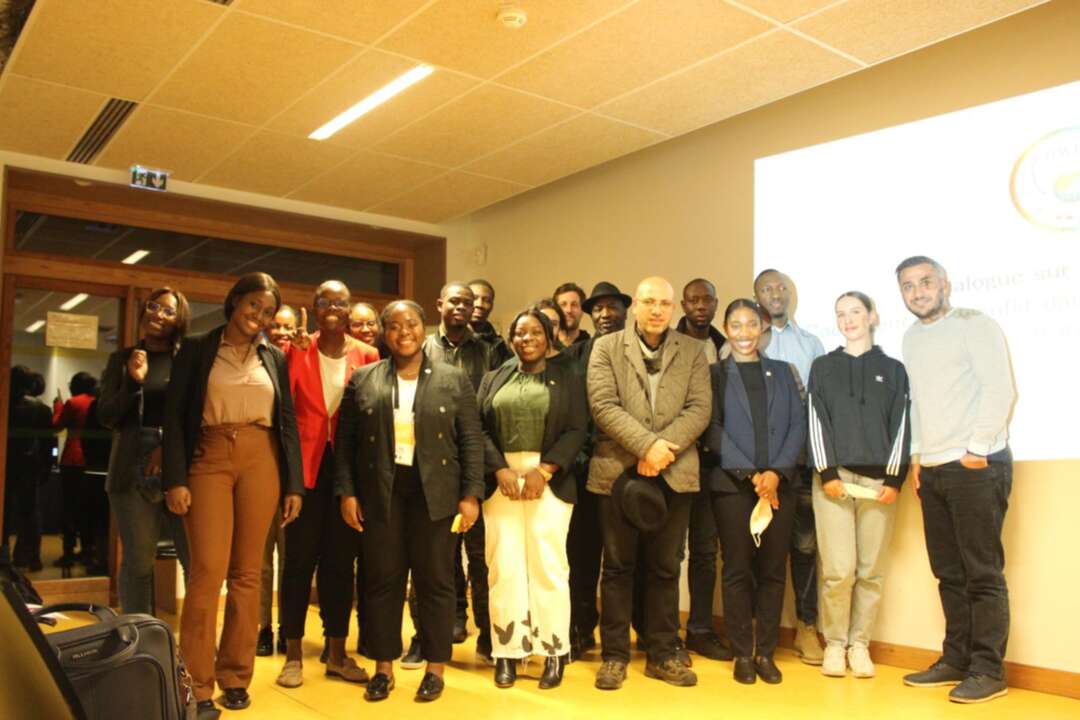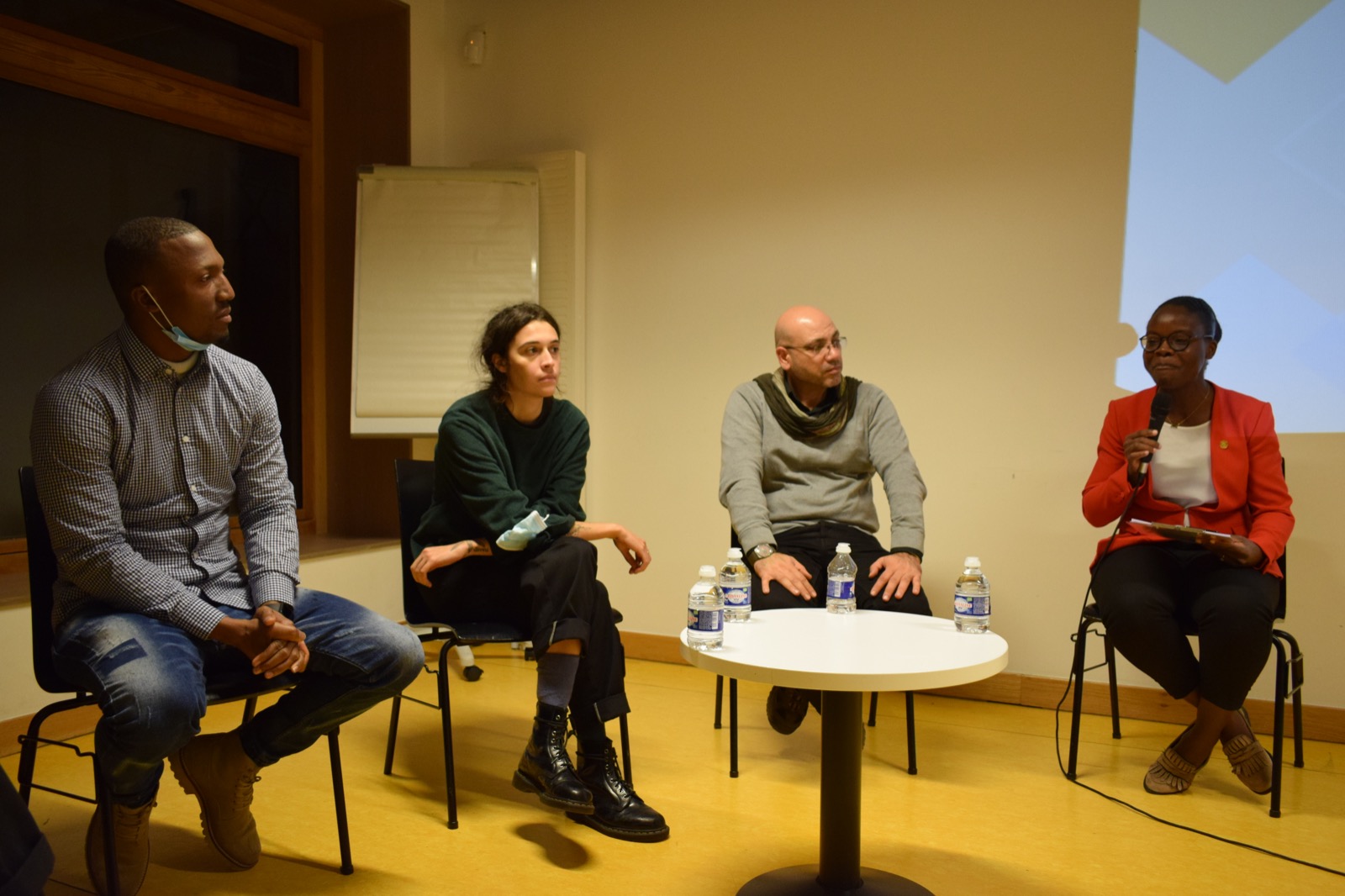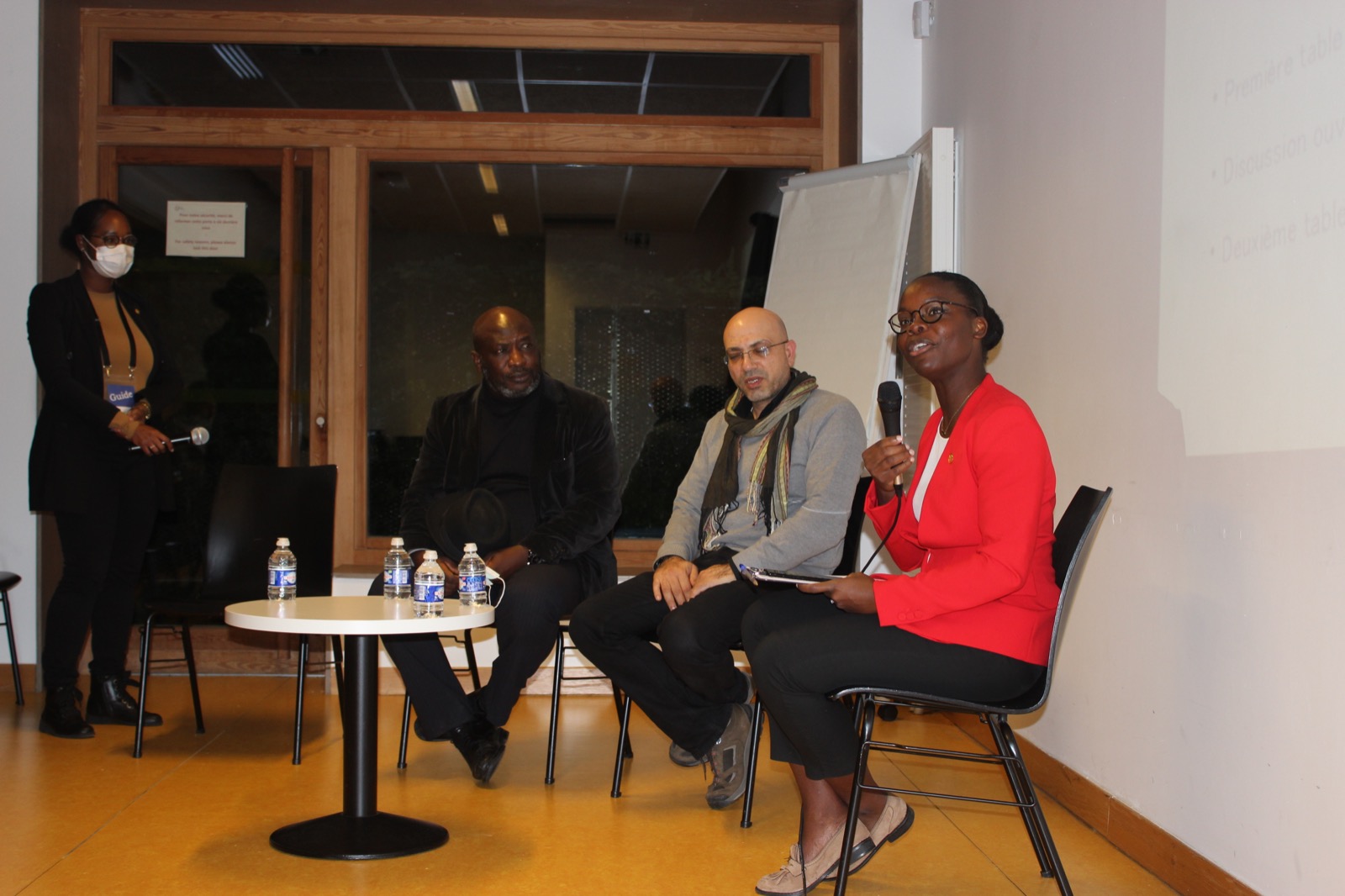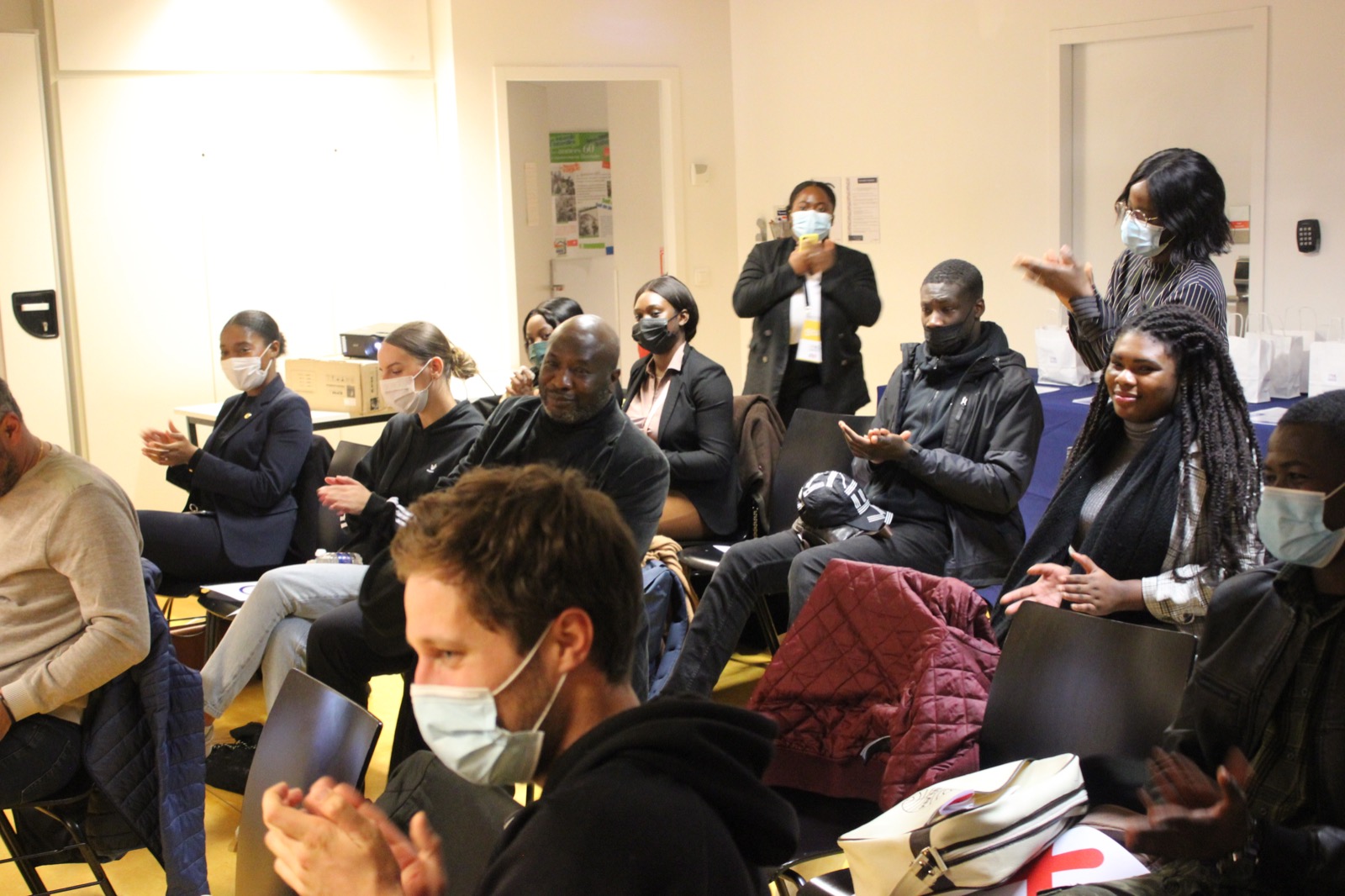-
Dialogue and tolerance "educational challenges" in the French multicultural society

This round table gathered guests of honour Mr. Mand Ryaïra Ngarara, President of IMPRODETT, Mr. Mamadou Wassa, General Treasurer of the Federation of African Workers in France (FETAF), Mr. Amadou, member of the United Migrants of Guinea in France, Ms. Léa, member of Utopia 56, Mr. Ali Dicko, member of the United Migrants of Senegal in France, Mr. Sakher Edris, founder of immigrants Now in France.
The panel was moderated by Ms Aurore Célestin, Head of the International Law Department of HWPL France. Other HWPL partners also joined the panel, notably Mr. Noumou Dembele, President of the Association des Jeunes de Madihawaya Moussala du Mali en France, as well as members of IPGY France; Ms. Assa Diawara, Mr. Amadou Diallo Oury Binta, Ms. Fofana Coumba.

In his introduction, Mr Mand stressed that "his association is oriented towards young people coming from recent immigration of sub-Saharan Africa in general. The difficulties encountered by these young people are those encountered by all people of immigrant origin. In particular, these young people do not find their place, are not accepted and are not expected by the host society. They are therefore not welcome. This is a fact, not a feeling. Why is that? Because they live in a vacuum.
France is a representative country that values freedom of expression, democracy and tolerance. However, social problems related to discrimination, such as race or gender, are increasing in various parts of French society. Among the current discriminations in France, in the case of gender discrimination or discrimination against people with disabilities, various measures are being taken at government and municipal council level to address these issues. In contrast, there are few counter-measures against racial and cultural discrimination, especially against migrants and refugees, and the related social problems persist.
France has a long history of immigration compared to other European countries, and is one of the representative multicultural countries that accept migrants from various countries and live together. To support their social integration, the government has implemented various social integration programmes for a long time. Various programmes are offered to migrants, such as understanding the French language, history and legal system, education on human rights such as equality and rights, participation as citizens and civic capacity building, vocational and social education, and cultural understanding.
Refugees are also a large part of French multicultural society. As wars in conflict zones have led to a significant increase in the influx of refugees to France in recent years, the problems of discrimination and hatred associated with them are also increasing. In order to address and prevent these problems, it is important to reduce negative perceptions about migrants and refugees. By sharing the views of various people from all walks of life, we hope that more people will pay attention to this issue and recognise the importance of tolerance and coexistence.

The event was concluded by the remarks of Mr Ali Dicko who said: "We migrants have to integrate into this French system. Through the criticism of the French, we as migrants must find the means to succeed. By saying that the French reject migrants, it is our responsibility to be accepted as migrants".
Sakher Edris said during the debate that immigrants or refugees did not choose this out of their own desire, but because of the oppression they were subjected to in their countries of origin. He spoke about the importance of the diversity of civilizations in developing the economy, and gave an example of that, Steve Jobs, the inventor of the iPhone, whose origins go back to Syria.

Edris also asked immigrants to work hard to integrate into their new societies.
Indeed, dialogue and tolerance can only flourish if certain preconditions are met, education being one of them. With this in mind, HWPL France aims to create a strong synergy by cooperating with other organisations, including those represented here today, to advance intercultural dialogue in France. It is clear from the round table that cultural diversity needs to be adapted in many aspects; for example, democratic citizenship and participation need to be strengthened; intercultural competences need to be taught and learned; spaces for intercultural dialogue need to be created and expanded. Thus, HWPL France plans to develop the ideas and suggestions of the panel, which seem to be a promising way for antidiscrimination ideas and conflicts to be implemented.
Levant-Paris
You May Also Like
Popular Posts
Caricature
BENEFIT Sponsors BuildHer...
- April 23, 2025
BENEFIT, the Kingdom’s innovator and leading company in Fintech and electronic financial transactions service, has sponsored the BuildHer CityHack 2025 Hackathon, a two-day event spearheaded by the College of Engineering and Technology at the Royal University for Women (RUW).
Aimed at secondary school students, the event brought together a distinguished group of academic professionals and technology experts to mentor and inspire young participants.
More than 100 high school students from across the Kingdom of Bahrain took part in the hackathon, which featured an intensive programme of training workshops and hands-on sessions. These activities were tailored to enhance participants’ critical thinking, collaborative problem-solving, and team-building capabilities, while also encouraging the development of practical and sustainable solutions to contemporary challenges using modern technological tools.
BENEFIT’s Chief Executive Mr. Abdulwahed AlJanahi, commented: “Our support for this educational hackathon reflects our long-term strategic vision to nurture the talents of emerging national youth and empower the next generation of accomplished female leaders in technology. By fostering creativity and innovation, we aim to contribute meaningfully to Bahrain’s comprehensive development goals and align with the aspirations outlined in the Kingdom’s Vision 2030—an ambition in which BENEFIT plays a central role.”
Professor Riyadh Yousif Hamzah, President of the Royal University for Women, commented: “This initiative reflects our commitment to advancing women in STEM fields. We're cultivating a generation of creative, solution-driven female leaders who will drive national development. Our partnership with BENEFIT exemplifies the powerful synergy between academia and private sector in supporting educational innovation.”
Hanan Abdulla Hasan, Senior Manager, PR & Communication at BENEFIT, said: “We are honoured to collaborate with RUW in supporting this remarkable technology-focused event. It highlights our commitment to social responsibility, and our ongoing efforts to enhance the digital and innovation capabilities of young Bahraini women and foster their ability to harness technological tools in the service of a smarter, more sustainable future.”
For his part, Dr. Humam ElAgha, Acting Dean of the College of Engineering and Technology at the University, said: “BuildHer CityHack 2025 embodies our hands-on approach to education. By tackling real-world problems through creative thinking and sustainable solutions, we're preparing women to thrive in the knowledge economy – a cornerstone of the University's vision.”
opinion
Report
ads
Newsletter
Subscribe to our mailing list to get the new updates!






















